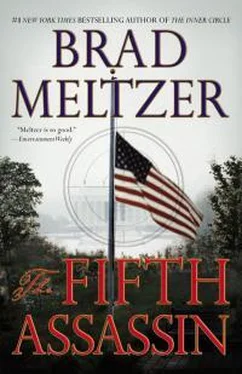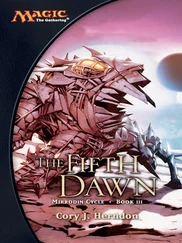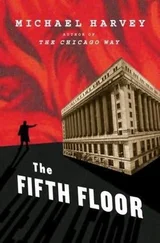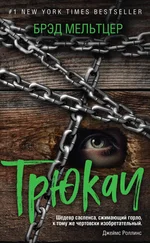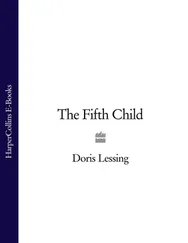“And that’s how you planned to hook me in? That’s as low as you could go? By using a letter that my dead father supposedly wrote to me?”
“He didn’t write it to you . He wrote it to your mother.”
On the third ring, I hear a click as the operator picks up. “Emergency Assistance. What is your location?”
“What’re you talking about?” I ask. “It’s a love letter?”
“No,” Clementine says. “It’s his suicide note.”
54
Most people made small talk with Julie Lyons. She knew why. It’s not that they liked her. They knew where she sat, and what she was in charge of.
Back during the President’s term as governor in Ohio, Julie—a fifty-four-year-old, square-faced woman who, around her neck, wore gold charms with her kids’ names on them—did all of Wallace’s scheduling. Today, her job was exactly the same, making her the only person who sat in the small room that connected to the Oval Office—and more important, the official gatekeeper for anyone who wanted to see the President.
“ Hey, Julie—how’s it going? ” most staffers asked.
“ You do something new with your hair? ” the real suck-ups would add.
“ How’s your daughter doing at Dartmouth? ” the smart ones said.
But as A.J. stepped into the cramped office and approached Julie’s desk, the last thing on his mind was small talk.
“Ma’am, we need to speak with him,” A.J. announced, using the word “we” even though he was alone. So Secret Service.
“Sorry. He’s on the phone,” Julie said, pointing A.J. to the wingback chairs across from her desk.
A.J. didn’t move. At all. “Ma’am, we need to speak with him. Right now.”
Julie stared up at A.J. It was easy saying no to staffers, and interns, and even to Secretary of Education Prebish, who brought his new wife and stepkids to the White House. But that’s different from saying no to the Service.
Squeezing around her desk, she headed for the curved door that connected to the Oval. A.J. couldn’t help but notice the blown-up photograph that filled the wall behind her desk. It was a shot—a private one—of the President (in profile and in full suit) pitching a whiffle ball to his eight-year-old son as the two of them played on the South Lawn. Even in profile, it was easy to see the joy on Wallace’s face. Yet like any Secret Service agent, A.J. knew his protectee. He could also see that deep wrinkle that ran from his nose to his chin and burrowed a dark parenthesis around the President’s smile. It was a worried wrinkle—the kind of wrinkle that came with knowing the peace wouldn’t last. As A.J. was well aware, that crease was only getting deeper.
On his left, Julie popped open the curved door. President Wallace was at his desk, on the phone. But as he glanced over at Julie, he could see who was standing right behind her.
A.J. didn’t have to say a word.
“Conrad, let me call you back,” the President said, hanging up the telephone.
With that, A.J. stepped into the Oval and the curved door closed behind him.
55
I know you’re lying,” I insist.
“I can’t always be lying, Beecher. Not about everything.”
From my phone, I hear the 911 operator asking what my emergency is. I tell her I dialed wrong—that there’s no emergency—even though I see one standing right in front of me.
“Just read the letter,” Clementine pleads, holding it out and trying to hand it over.
I don’t reach for it. I can’t.
“Just read it, Beecher. Judge for yourself.”
I still don’t move. Across from me, Clementine waves the letter like a white flag. She can soften herself all she wants with the blonde wig and all; it’s still the same person living in that body. But the most compelling part of Clementine’s argument has nothing to do with her.
“It’s your father ,” Clementine says, still offering me the white flag. “How could you not at least read it?”
I glance down at the inside of my wrist. Her nails left crescent indentations. They’ll fade soon. My questions won’t.
“You’ll only regret it if you don’t read it, Beecher.”
I snatch the sheet from her hand. From the poor quality of the photocopy, it looks like a fax. I try to read it immediately, scanning it once, then again—but the words don’t make sense. My hands start to shake, and I feel like a teenager trying to read the directions for a home pregnancy kit.
Dear Teresa,
My mother’s name. But what makes my body numb—what makes it feel like there’s a thin plastic sheet between my outer layer of skin and my inner layer of skin—is when I see the starkly printed “T” in front of the scribbly cursive “eresa.”
My father died when I was three years old. He wasn’t around long enough for me to know his handwriting. But to this day, my mother keeps the last card he sent her—a Valentine’s card with Snoopy on it—in the giant hat box that she has in the corner of her bedroom and stores all of our loose photos and Polaroids in.
My mom didn’t believe in photo albums. She wanted the photos out, so you could sift through them at any time. As an archivist, the disorganization still kills me. But as a son, I appreciated the opportunity to study the old Valentine.
It didn’t say much. My dad wrote To My Valentine Teresa at the top, then let the card do the talking. But the way he wrote Teresa —printed “T,” cursive “eresa”—I studied that card for hours, down to the UPC barcode on the back and the price that was ninety-nine cents. I know that card. And I know my father’s handwriting when I see it. Blinking hard, I fight to read it.
Dear Teresa,
You win. As you always have. I still hear your words from that morning at the bus station. You were so scared I wasn’t coming back. I swore you were wrong. But I’m now all too aware that is not the case.
I grieve for the pain I know this will cause you. And the damage to our babies. When you tell stories of me, please always mention that I loved them. I always will.
I wish I could have made a better life for you. But with my passing, my menace to them—and to you—is gone.
Please have Pastor Riis officiate at my funeral. And if this reaches you before Beecher’s birthday, please buy him something big and stupid.
—Albert
My entire life, I was told my father died in a car accident on a bridge in Wisconsin. The plastic sheet that feels like it’s between my layers of skin now seems like it’s expanding, cleaving me in half. My hand starts to shake even harder.
Clementine, standing now, reaches out to comfort me.
“Don’t touch me,” I warn her. “Where did you get this?”
“Beecher, before you—”
“Where’d you get it?”
“Beecher, please. I know it’s hard. When you helped me find Nico—”
“I didn’t help you find Nico! You found him yourself and then came to me, pretending you were clueless! Now what the hell is going on!?”
She takes a half step back. “Did you look at the date?” she asks.
I stare down at the note. My father died on July 20th. But this suicide note, or whatever it is, it’s dated July 27th. One week after he supposedly died.
My tongue swells in my mouth. I try to breathe but nothing comes out. I know it’s a lie. Everything she says is a lie. “My father didn’t commit suicide,” I insist.
“I’m not saying he did, Beecher. But don’t you—?”
“He didn’t commit suicide! He wouldn’t do that!”
“Beecher, I know this is a wrecking ball for you, but you have to—”
“Don’t tell me what I have to do ! You didn’t know my father! You never met him! He wouldn’t leave us like that!”
Читать дальше
